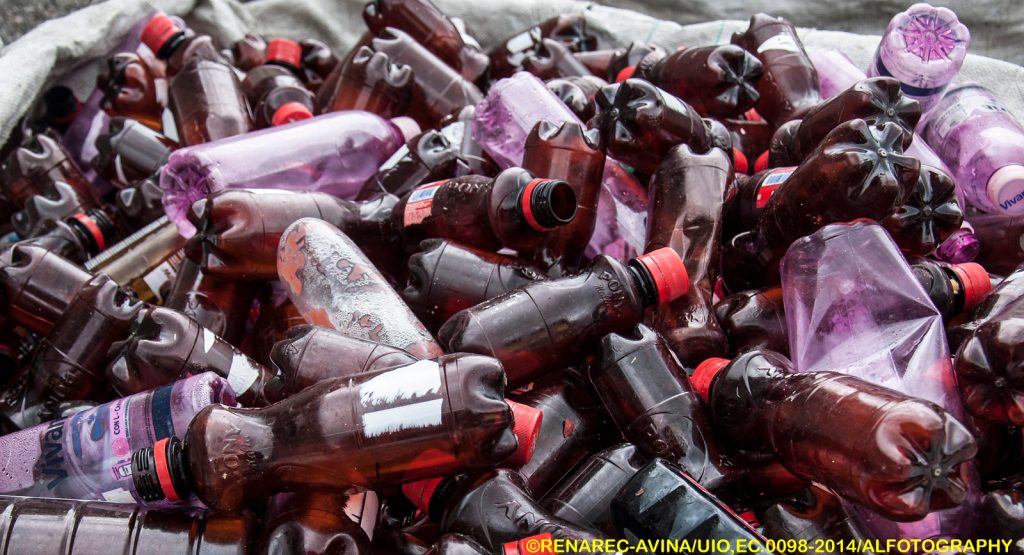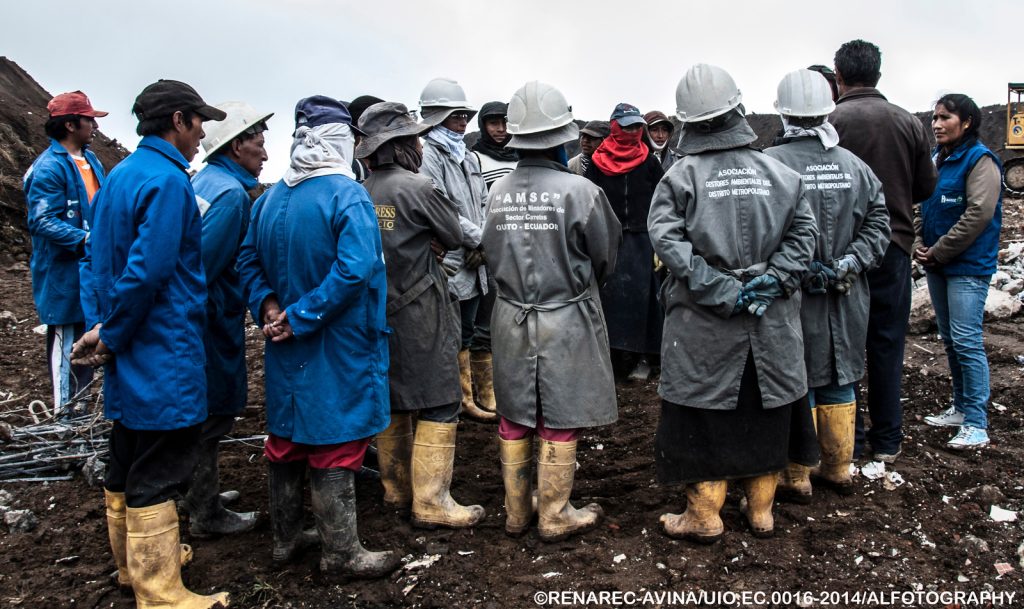Fundación Avina’s unique work model, CollaborAction, guides the organisation’s approach to enacting real social and environmental impact. This is best demonstrated via the Fair Ton concept, which addresses gaps in the just transition with a proactive, socially conscious, and inclusive recycling program.
Bridging collaboration gaps is part of Fundación Avina’s DNA. When an agenda stalls due to misalignment among stakeholders, the organisation steps in to align visions, interests, and actions. More than just a concept, CollaborAction has become a hallmark of Avina’s work, guiding how the organisation drives deep transformations in favor of human dignity and care for the planet. It was through this collaborative approach that we arrived at the concept of Fair Ton—a response to a crucial gap in the transition approach: recognising marginalised groups as key protagonists of a just transition.
Just Transition
The term “just transition” is commonplace, but no less relevant or complex. Amadou Mbodj, Program Manager at Fundación Avina, recently opened a dialogue on this topic at the 2025 F20 Climate Solutions Forum. While the answers may vary in the search for a unified vision, the underlying premise is that a just transition is not solely about decarbonising economies or changing energy matrices. It must also account for human factors and the social and economic dimensions of a global transformation. It calls for new sustainable economic models that respond to the climate emergency in an equitable, inclusive, and socially just way.

The Example of Inclusive Recycling
One of the ways we apply our collaborative approach to promote a just transition is through the inclusive recycling agenda. In Latin America, around 4 million people earn a living by collecting solid waste for recovery and recycling, according to Progress and challenges for inclusive recycling – An assessment of 12 Latin American and Caribbean cities, a study by The Economist Intelligence Unit. In South Africa alone, there are more than 200,000 waste pickers, according to Global Citizen.
For decades, the work of waste pickers has been marked by invisibility, social exclusion, and degrading conditions. It was often seen as a last resort job, associated with urban marginalisation. But it was precisely this reality that created a powerful opportunity for systemic transformation in Latin America’s waste management model—an opportunity Fundación Avina embraced.
The starting point was recognising a deep coordination gap: isolated waste pickers, governments turning a blind eye, companies disengaged from the value chain, and a society that ignored the value of this essential work. Fundación Avina began to build bridges between stakeholders who had never interacted: waste pickers, private sector actors, governments, cooperatives, international agencies, and civil society. This gave rise to Latitud R, a shared governance platform that brought all actors to the table to collectively rethink recycling in the region. A network of trust was established, grounded in a shared purpose: dignifying the role of waste pickers, promoting inclusive public policies, and transforming the waste system into a driver of social, environmental, and economic justice.
From this collaborative foundation emerged innovative solutions—such as the formalisation of waste pickers organised in multiple countries, the improvement of income and labour conditions in those organisations or their active participation in international negotiations like the Global Plastics Treaty.

Fair Ton
It was through this process that new concepts and methodologies such as Fair Ton were developed. This concept includes tools that quantify the climate value of waste pickers’ work by scientifically measuring the amount of greenhouse gas emissions avoided through collection and recycling.
Fair Ton brings a key idea to the table: it is not enough to reduce emissions; it is also essential to reduce vulnerabilities and improve economic and social conditions. Fair Ton also offers a solid method for quantifying the contribution of waste pickers to climate change mitigation, economic empowerment and social/labour conditions. This estimate represents a milestone in recognising and valuing the contribution of this sector, which is responsible for 60% of global recycling. Therefore, in addition to the climate dimension addressed through measurement tools, the concept also incorporates two other critical pillars; the economic (ensuring fair income) and the social (guaranteeing decent working conditions).
Creating this methodology and concept was the result of a collaborative working model that required—and continues to require—listening, coordination, and trust. This is CollaborAction in practice: aligning the interests of a diverse network of actors around a unified vision and a shared action agenda, with innovative proposals that drive policy influence. The process delivers a distinct outcome: collaborative impact, which neither governments nor organisations can achieve alone.
Thanks to the adoption of Fair Ton concept by waste picker organizations, it will be possible to bring more actors to the table to reinforce the ongoing process of recognition, formalization and empowerment of this sector that is critical for an Inclusive Circular Economy. Latitud R has already achieved significant impact in 14 countries across Latin America, benefiting more than 25,000 waste pickers organized into nearly 500 groups. Now, it is essential to keep working to scale this model and include the thousands of other waste pickers who continue to carry out an activity that benefits the entire planet by helping to avoid carbon dioxide and methane emissions.
Fair Ton is being developed within the multisectoral initiative Latitud R, the leading regional platform in Latin America for coordinating actions, investments, and knowledge on Inclusive Recycling. Learn more at: www.latitudr.org
Q3 2025 Climate Solutions Magazine
We encourage you to read this edition of the F20 Climate Solutions Magazine in full. The articles focus on the transformative potential that future-forward, bold policy can have.
Expand the preview below and immerse yourself in these thought-provoking articles.